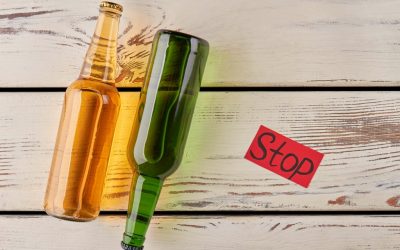Alcohol-induced alterations in dopamine modulation of prefrontal activity
The cycle of increased drinking to combat negative emotions, followed by worsening mood due to dopamine depletion, can be particularly challenging for individuals with co-occurring mental health and alcohol use disorders. Dopamine is a https://www.teamdigusa.com/alcohol-withdrawal-causes-symptoms-timeline-and/ neuromodulator that is used by neurons in several brain regions involved in motivation and reinforcement, most importantly the nucleus accumbens (NAc). Dopamine alters the sensitivity of its target neurons to other neurotransmitters, particularly glutamate.
- It’s important to note that dopamine recovery is not always a linear process.
- These include healthcare providers, addiction specialists, support groups like Alcoholics Anonymous, and online resources provided by organizations such as the National Institute on Alcohol Abuse and Alcoholism (NIAAA).
- They were looking for evidence of increased levels of dopamine, a brain neurotransmitter.
- However, if you are genuinely ready to give recovery an honest chance this treatment is the perfect place to go.
Alcohol and Dopamine: The Complex Relationship Between Drinking and Brain Chemistry
Additionally, our staff provides family counseling, relapse prevention, life skills, and grief and trauma counseling. 3Glutamate is the major excitatory neurotransmitter; that is, glutamate stimulates the signal-receiving cell. Yim H and Gonzales R. Ethanol-induced increases in dopamine extracellular concentration in rat nucleus accumbens are accounted for by increased release and not uptake inhibition.
Short-Term Effects of Alcohol on Dopamine
- For example, rats receiving a palatable food for the first time exhibited significant dopaminergic signal transmission in the NAc shell.
- Excessive and long-term alcohol consumption throws these CNS functions out of balance, leading to slower thinking, poor coordination, memory impairment, and blackouts.
- It’s crucial to remember that dopamine receptor recovery is a gradual process that requires patience and persistence.
- Schematic representation of the major dopaminergic systems (viewed from the top of the head).
By the way, many rehab centers offer exercise therapy, which is an experiential approach that boosts feel-good neurotransmitter release. Dopamine is a neurotransmitter responsible for sensations of joy and pleasure. It’s a crucial part of our brain’s reward system, the fascinating neurological network that drives us to pursue experiences and activities that make us feel good.
GABA
Chronic drinking can exacerbate or even trigger mental health issues like depression and does alcohol release dopamine anxiety. When you drink, alcohol triggers a spike in dopamine—the “feel-good” chemical—that activates this reward system. This creates a sense of pleasure or euphoria, which is why you might feel carefree or happy when you’re drinking. While it may initially make you feel more social or relaxed, it can also amplify aggression and make you more prone to anxiety. This can lead to mood swings or emotional outbursts, especially if you’re already feeling stressed or upset before you start drinking.
- By pressing pause on alcohol, we can increase our awareness of our drinking habits and triggers.
- Experiments in mice showed that when given Valium regularly, not only did they develop a tolerance to it, but they also developed an increased tolerance to alcohol.
- Thus, personalized treatment plans that address underlying mental health conditions are essential for a successful recovery.
- Serotonin also may interact with additional neurotransmitters that have been found to contribute to alcohol’s effects on the brain.

Alcohol interferes with the brain’s communication pathways and can affect the way the brain looks and works. Yes, with the right treatment, including medications, nutrition, and behavioral therapies, it is possible to restore dopamine balance in the brain over time. The new research shows marijuana addiction that it takes at least two weeks for the brain to start returning to normal, so this is the point at which the alcohol recovery timeline begins. Until the brain has recovered, it is less able so suppress the urge to drink. Cognitive effects of alcohol use may include memory loss, problems with learning, dementia, and severely hindered mental functioning in most severe cases. It can also lead to more serious disorders like Parkinson’s disease, Restless Leg Syndrome (RLS), depression, and ADHD to name a few.

What remains constant is the potential for positive change and the importance of self-compassion along the way. Whether you’re just starting out or well along in your recovery journey, know that you’re not alone, and that a healthier, more balanced future is within reach. So while it may seem like alcohol is helping you unwind, it can actually mess with your mood regulation in ways that you might not realize until after the effects wear off. Brodie speculates that variations in the amount of the KCNK13 channel could be involved in predisposing certain people to binge drinking. Brodie and his colleagues used genetic techniques to reduce KCNK13 in the VTA of mice by about 15 percent compared with normal mice.
At Boardwalk Recovery, we take a comprehensive approach that supports brain healing and helps individuals regain control of their lives. One of the most affected areas is the hippocampus, which is important for forming new memories. Long-term drinking can shrink this area, making it harder to remember things or learn new information. In another experiment, the researchers examined the response of neurons in the VTA region taken from the mice that expressed less KCNK13. When these neurons were exposed to alcohol, they were 50 percent less responsive to alcohol than VTA neurons from normal mice.


